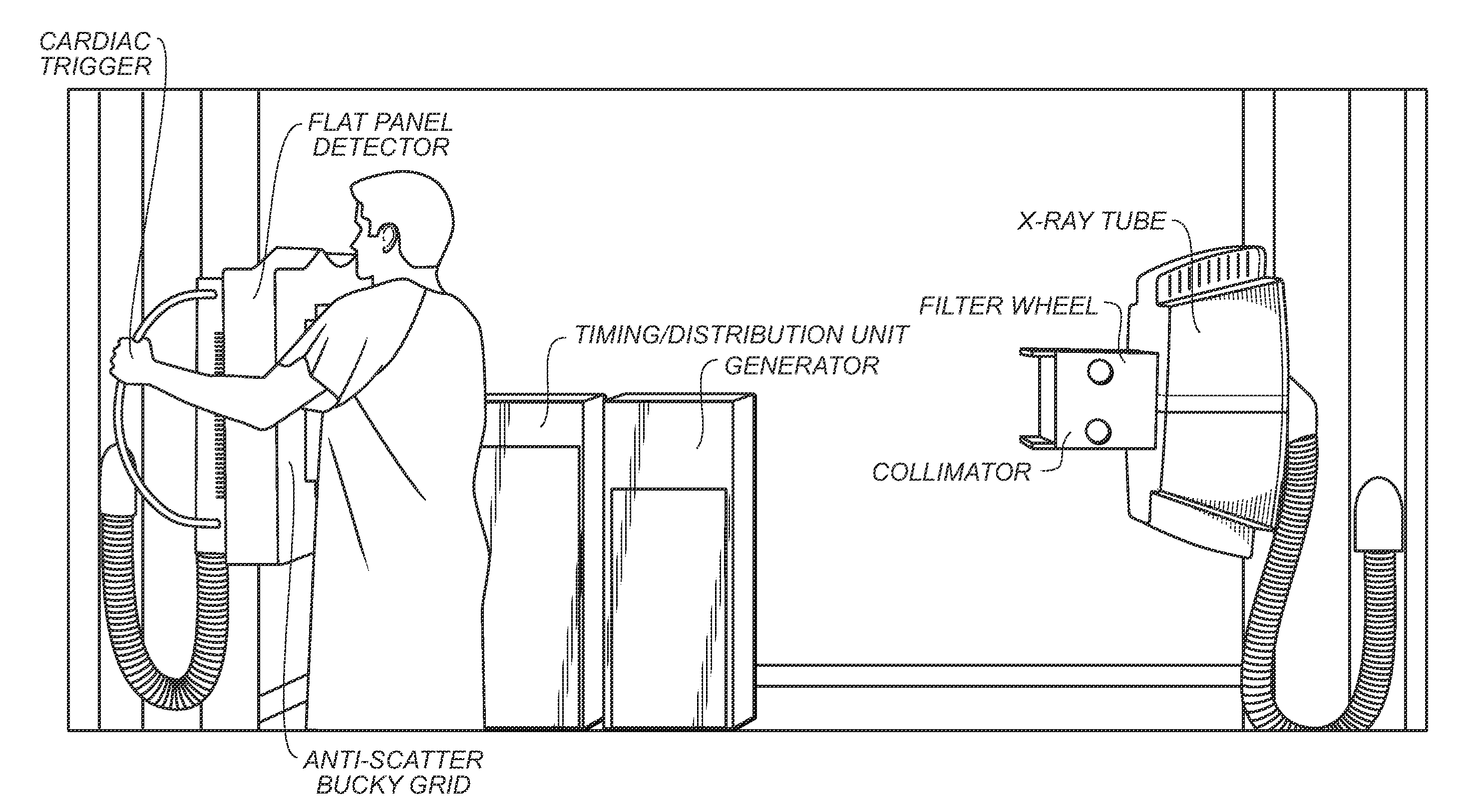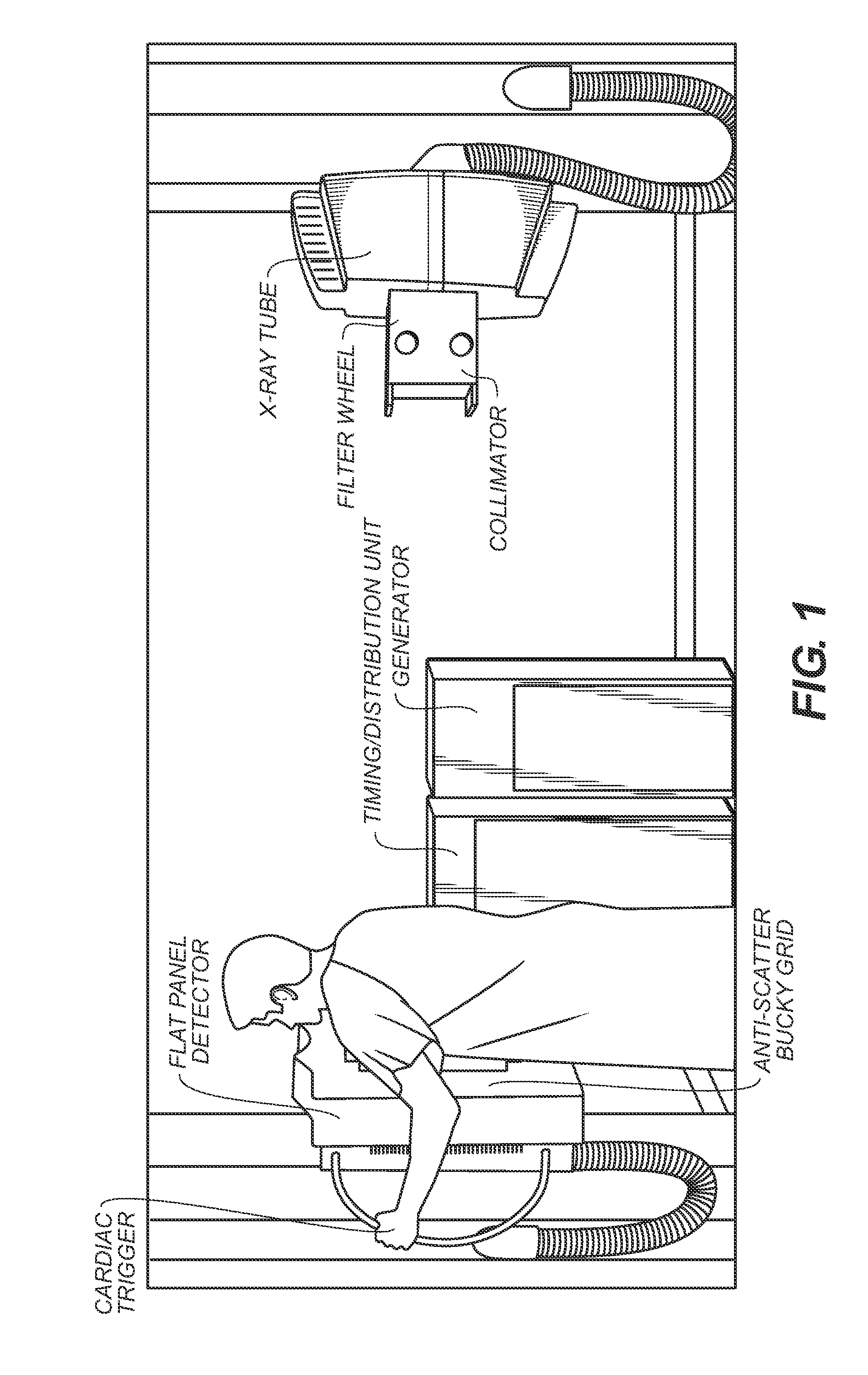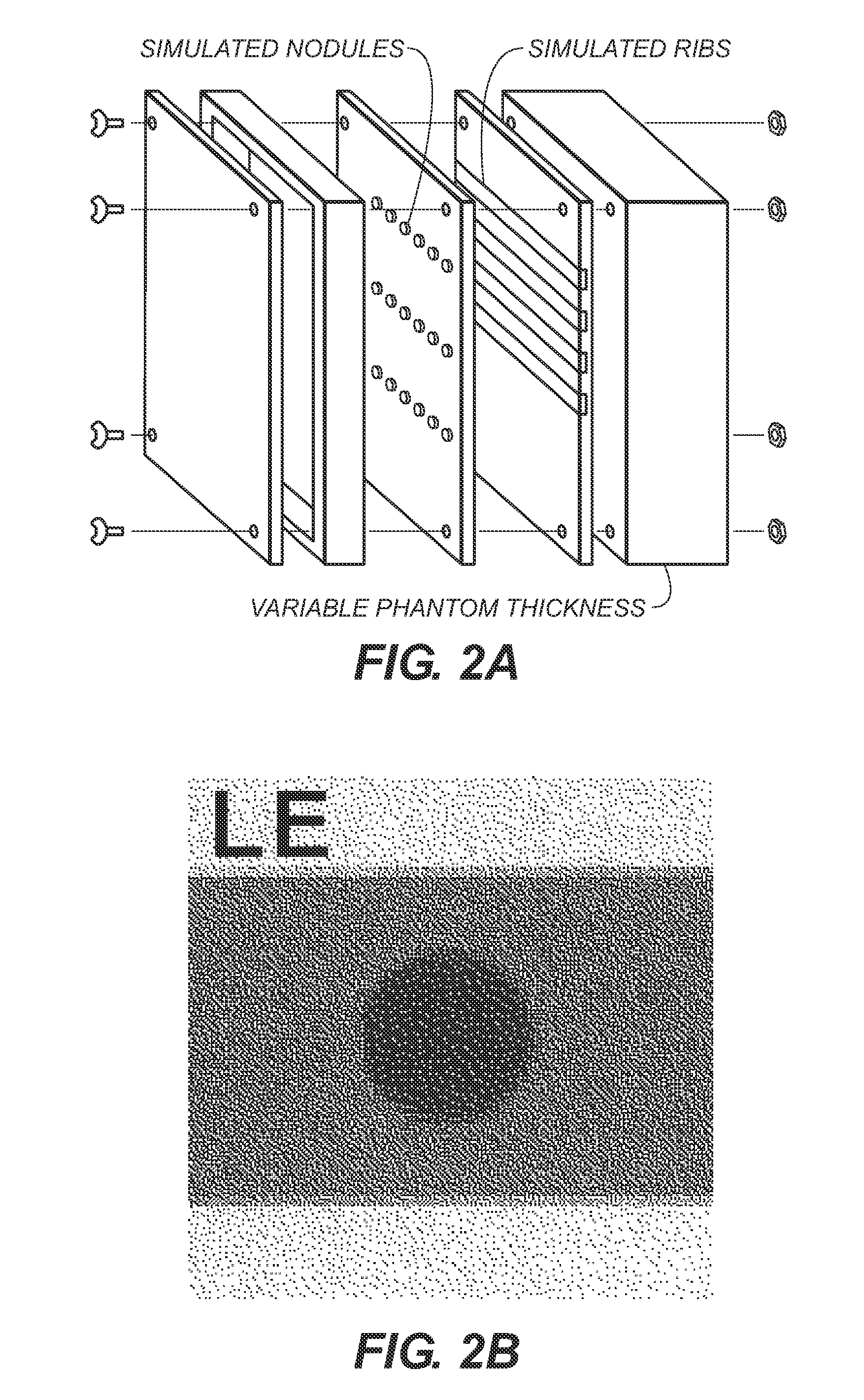Image acquisition for dual energy imaging
a dual-energy imaging and image acquisition technology, applied in material analysis using wave/particle radiation, instruments, nuclear engineering, etc., can solve the problems of increasing cost and radiation dose, unable to detect early-stage disease, and unable to meet the diagnostic specificity of lung cancer,
- Summary
- Abstract
- Description
- Claims
- Application Information
AI Technical Summary
Benefits of technology
Problems solved by technology
Method used
Image
Examples
Embodiment Construction
[0022]The following is a detailed description of the preferred embodiments of the invention, reference being made to the drawings in which the same reference numerals identify the same elements of structure in each of the several figures.
[0023]An exemplary dual energy (DE) imaging system is illustrated in FIG. 1. The system is based on a radiographic chest stand (RVG 5100 system, Eastman Kodak Company, Rochester, N.Y.), modified to perform cardiac-gated DE imaging.
[0024]The system includes a high-frequency, 3-phase generator (VZW 293ORD3-03, CPI, Georgetown, Ontario), a 400 kHU x-ray tube (Varian Rad-60, Salt Lake City, Utah), and a 10:1 antiscatter Bucky grid (Advanced Instrument Development Inc., Melrose Park, N.J.). Modifications to the RVG 5100 platform include:
[0025]1.) a collimator (Ralco R302 ACS / A, Biassono, Italy) incorporating a computer-controlled filter-wheel;
[0026]2.) a high-performance flat-panel detector, FPD (Trixell Pixium-4600, Moirans, France);
[0027]3.) a cardiac ...
PUM
| Property | Measurement | Unit |
|---|---|---|
| thickness | aaaaa | aaaaa |
| atomic number | aaaaa | aaaaa |
| thick | aaaaa | aaaaa |
Abstract
Description
Claims
Application Information
 Login to View More
Login to View More - R&D
- Intellectual Property
- Life Sciences
- Materials
- Tech Scout
- Unparalleled Data Quality
- Higher Quality Content
- 60% Fewer Hallucinations
Browse by: Latest US Patents, China's latest patents, Technical Efficacy Thesaurus, Application Domain, Technology Topic, Popular Technical Reports.
© 2025 PatSnap. All rights reserved.Legal|Privacy policy|Modern Slavery Act Transparency Statement|Sitemap|About US| Contact US: help@patsnap.com



